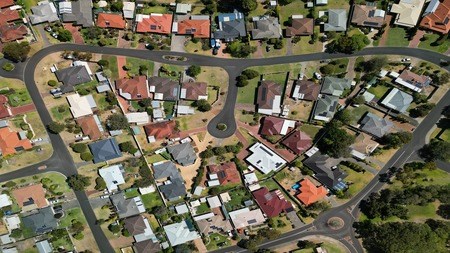Balconies are a huge asset in any sectional title scheme, but they have an inconvenient tendency to leak rainwater onto balconies or units below, and this can all too often result in damages to several units. What is more, the damages are often not just to the structure of the building – but to electrics, furniture, carpets, clothing and electronic equipment, all of which can become dysfunctional after being soaked.
Before any action is taken in these cases, it is essential to determine who the owner of the balcony is. In SA today the balcony can, and often does, form part of the member’s section, but it can also be part of the common property or an exclusive use area – and the only way to determine ownership is to study the sectional title plans.
If the balcony forms part of the scheme’s common property, the body corporate is responsible for its repair.
If it is an exclusive use area but has been ceded to the unit owner, whose section it links with, that owner, according to Section 44 (1c) of the Sectional Title Act, is responsible for it.
If the balcony is part of a section, that section owner is responsible for its condition and repairs.
It sometimes happens, says Bauer, that the owner of a unit fails to comply with notices asking him to attend to leak problems in his balcony. In these cases, the Prescribed Management Rule 70 allows the body corporate to repair the balcony, after giving 30 days notice, and to recover “reasonable” costs from the owner. According to Bauer, the word “reasonable” implies that three competitive quotes should be obtained.
It can also happen, he says, that a stubborn owner refuses to allow inspection or repair teams access to his unit. The trustees then have two legal options (of which both take time and cost money): they can refer the matter to arbitration in terms of Prescribed Management Rule 71 or they can apply to the High court for an urgent application or interdict to gain entry to the unit.
Arbitration is increasingly resorted to in SA on many matters and is faster and cheaper than a court application. If the defendant fails to attend the arbitration hearing, the arbitrator can still give a binding decision, which will become an order of the court. In most cases, however, the threat of arbitration will result in the desired response from the unit holder.
The big question in many cases is who pays for damages caused by a leaking balcony?
If the repairs are undertaken in a reasonably fast time and prove effective, the damages originally caused are usually covered by the body corporate’s insurance. If repairs are done late or inefficiently and the damage is increased by this, the insurer has the right to reject the claim.
In a recent case, the arbitrator found that an exclusive use owner had failed to fix a leak in his patio in good time even though he had been made aware of it. He was, therefore, held responsible for all the damages, the argument being that, had he acted faster, these would have been far less serious.


